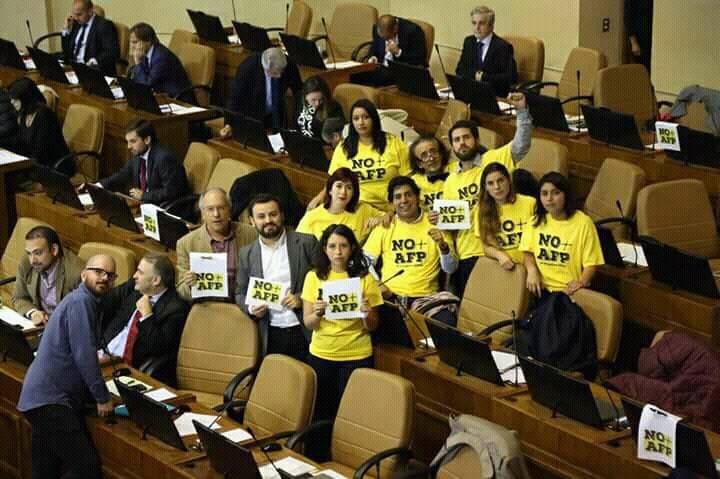In turn, the prominent intellectual of the “socialist renovation”, Eugenio Tironi, has argued (as a virtual epigone of Adam Smith!) that “the society of individuals, where people understand that the collective interest is nothing more than the result of the maximisation of individual interests, has already taken shape in the daily behaviour of Chileans of all social classes and ideologies. None of this is going to be reversed in the short term by any government, leader or party (…) The transformations that took place in Chilean society in the 1990s could not be explained without the liberalising reforms of the 1970s and 1980s (…) Chile learned a few decades ago that it could not continue trying to imitate an economic model that left it on the margins of world trends. The change was painful, but it was inevitable. Those who designed and undertook it showed vision and leadership” (La irrupción de las masas y el malestar de las elites. Chile at the turn of the century; Grijalbo, 1999; pp. 36, 60 and 162).
Understandably, there has been much more praise from the right for the Concertación’s Copernican turn. Thus we have the famous “declarations of love” made to Ricardo Lagos by the then president of the Confederation of Production and Commerce, Hernán Somerville (see La Segunda; 14-10-2005); or the description by the economist and businessman César Barros of Lagos himself as having been “the best right-wing president of all time” (La Tercera; 11-3-2006); or the expressions of the UDI politician, Herman Chadwick, that “President Lagos gave us back the pride of being Chileans” (see El Mercurio; 21-3-2006); or those of the Pinochet businessman, Ricardo Claro, who in 2008 said that “Lagos is the only politician in Chile with an international vision, and he is very up-to-date. I can’t find any other on the right or in the DC” (El Mercurio; 12-10-2008).
And in more general terms, the prominent political scientist from RN, Oscar Godoy, when asked if he observed dismay on the right at “the Concertación’s ability to appropriate the economic model”, replied: “Yes, and I think that should be a reason for great joy, because it is the satisfaction that a believer gets from converting others. That is why I have so many friends in the Concertación; in my time we were antagonists and to see them now thinking like liberals, committed to a development project of a liberal economic construction, gives me great satisfaction” (La Nación; 16-4-2006).
Likewise, at the international level, we have the declarations of Arnold Harberger, Milton Friedman’s sidekick at the famous School of Economics of the University of Chicago. After hearing Ricardo Lagos at a seminar in Colombia, he pointed out that “his speech could have been presented by a professor of economics from the great period of the University of Chicago. He is an economist and explained things in our own words. The fact that left-wing political parties have finally embraced the lessons of good economic science is a blessing for the world” (El País, Spain; 14-3 2007). And in more general terms, when he stated that the University of Chicago’s objective with respect to Chile “was to bring good economic science” and “that we succeeded in that” thanks to the agreements with the Catholic and Chilean universities. Thus, “I believe that there has been a great evolution of economic policy in Chile during the period of the military government, and once Patricio Aylwin’s team was formed with Alejandro Foxley and others, they followed the same course and that has continued to this day as far as I know (…).
One looks at the different political parties in Chile, their economic platforms, and they differ in millimetres, in centimetres, not in kilometres” (El Mercurio; 19-12-2010).
The economic right was also very generous to the Concertación leadership in concrete terms. Thus, dozens of former parliamentarians and former ministers, undersecretaries and superintendents of its governments have come to occupy boards of directors or senior executive positions in companies, banks, AFPs (pension funds), Isapres (health), foundations and the media of the big economic groups. And they also contributed substantially to the financing of the electoral campaigns (through regular and irregular channels) of presidential and parliamentary candidates.
And the expectations of replacing the neoliberal model that arose with the “revolt” or “social explosion” of October 2019 were neutralised with the Machiavellian agreements established between the right wing and the former Concertación (to which the Frente Amplio and the PC were subordinated…) to generate substitute constituent assemblies. Either by stipulating in them undemocratic quorums of two-thirds; making the legislative implementation of their agreements to be eventually resolved by the constituted Congress; or, as it happens nowadays, that the text of a “new” Constitution be drafted by “experts” appointed by the constituted Congress, on bases defined by the latter and that it can only be revised by an elected “Council” of only 50 members and by a quorum of 60% of them. This has certainly not happened in any other supposedly democratic society in the world.
Naturally, the political objective of all this is that the future of the country – beyond the strident verbal quarrels between government and opposition, between right and “left” – continues to be defined by the “consensual bloc” (right-wing ex-Concertación) and in such a way as to maintain essentially the same model of “the 30 years”, of the post-dictatorship; a model widely vindicated in recent times by its architects and -notably- also, to a certain extent, by the “right-wing” and the “left”.
also, to a certain extent, by the Frente Amplio and by Gabriel Boric, who until recently had criticised it bitterly…






